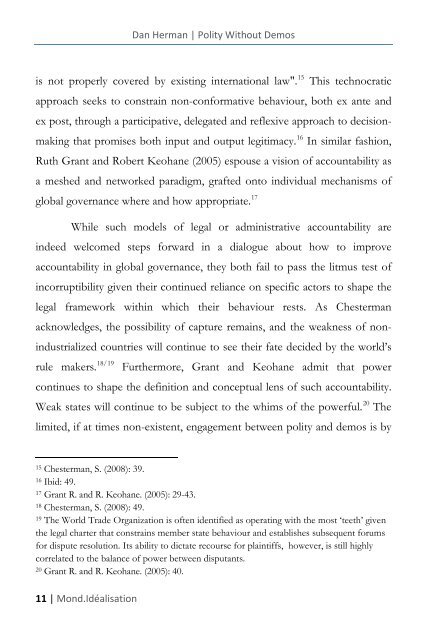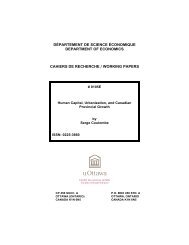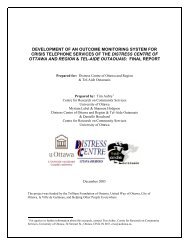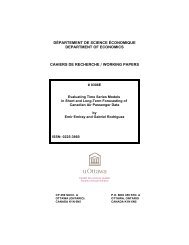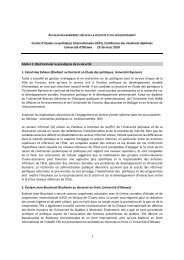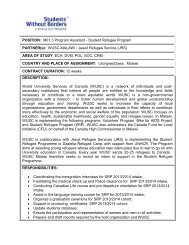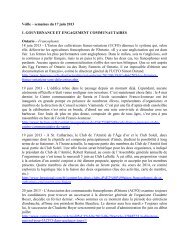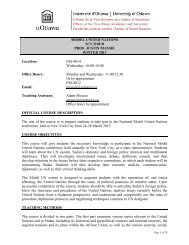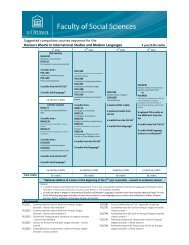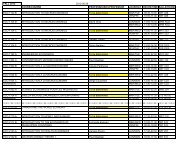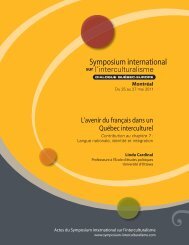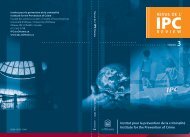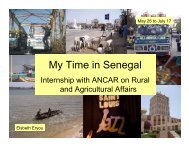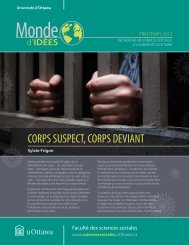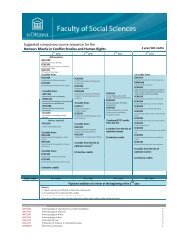GLOB.IDEALIZATION MOND.IDÉALISATION - Faculty of Social ...
GLOB.IDEALIZATION MOND.IDÉALISATION - Faculty of Social ...
GLOB.IDEALIZATION MOND.IDÉALISATION - Faculty of Social ...
Create successful ePaper yourself
Turn your PDF publications into a flip-book with our unique Google optimized e-Paper software.
11 | Mond.Idéalisation<br />
Dan Herman | Polity Without Demos<br />
is not properly covered by existing international law". 15 This technocratic<br />
approach seeks to constrain non-conformative behaviour, both ex ante and<br />
ex post, through a participative, delegated and reflexive approach to decisionmaking<br />
that promises both input and output legitimacy. 16 In similar fashion,<br />
Ruth Grant and Robert Keohane (2005) espouse a vision <strong>of</strong> accountability as<br />
a meshed and networked paradigm, grafted onto individual mechanisms <strong>of</strong><br />
global governance where and how appropriate. 17<br />
While such models <strong>of</strong> legal or administrative accountability are<br />
indeed welcomed steps forward in a dialogue about how to improve<br />
accountability in global governance, they both fail to pass the litmus test <strong>of</strong><br />
incorruptibility given their continued reliance on specific actors to shape the<br />
legal framework within which their behaviour rests. As Chesterman<br />
acknowledges, the possibility <strong>of</strong> capture remains, and the weakness <strong>of</strong> nonindustrialized<br />
countries will continue to see their fate decided by the world’s<br />
18/19<br />
rule makers. Furthermore, Grant and Keohane admit that power<br />
continues to shape the definition and conceptual lens <strong>of</strong> such accountability.<br />
Weak states will continue to be subject to the whims <strong>of</strong> the powerful. 20<br />
The<br />
limited, if at times non-existent, engagement between polity and demos is by<br />
15 Chesterman, S. (2008): 39.<br />
16 Ibid: 49.<br />
17 Grant R. and R. Keohane. (2005): 29-43.<br />
18 Chesterman, S. (2008): 49.<br />
19 The World Trade Organization is <strong>of</strong>ten identified as operating with the most ‘teeth’ given<br />
the legal charter that constrains member state behaviour and establishes subsequent forums<br />
for dispute resolution. Its ability to dictate recourse for plaintiffs, however, is still highly<br />
correlated to the balance <strong>of</strong> power between disputants.<br />
20 Grant R. and R. Keohane. (2005): 40.


